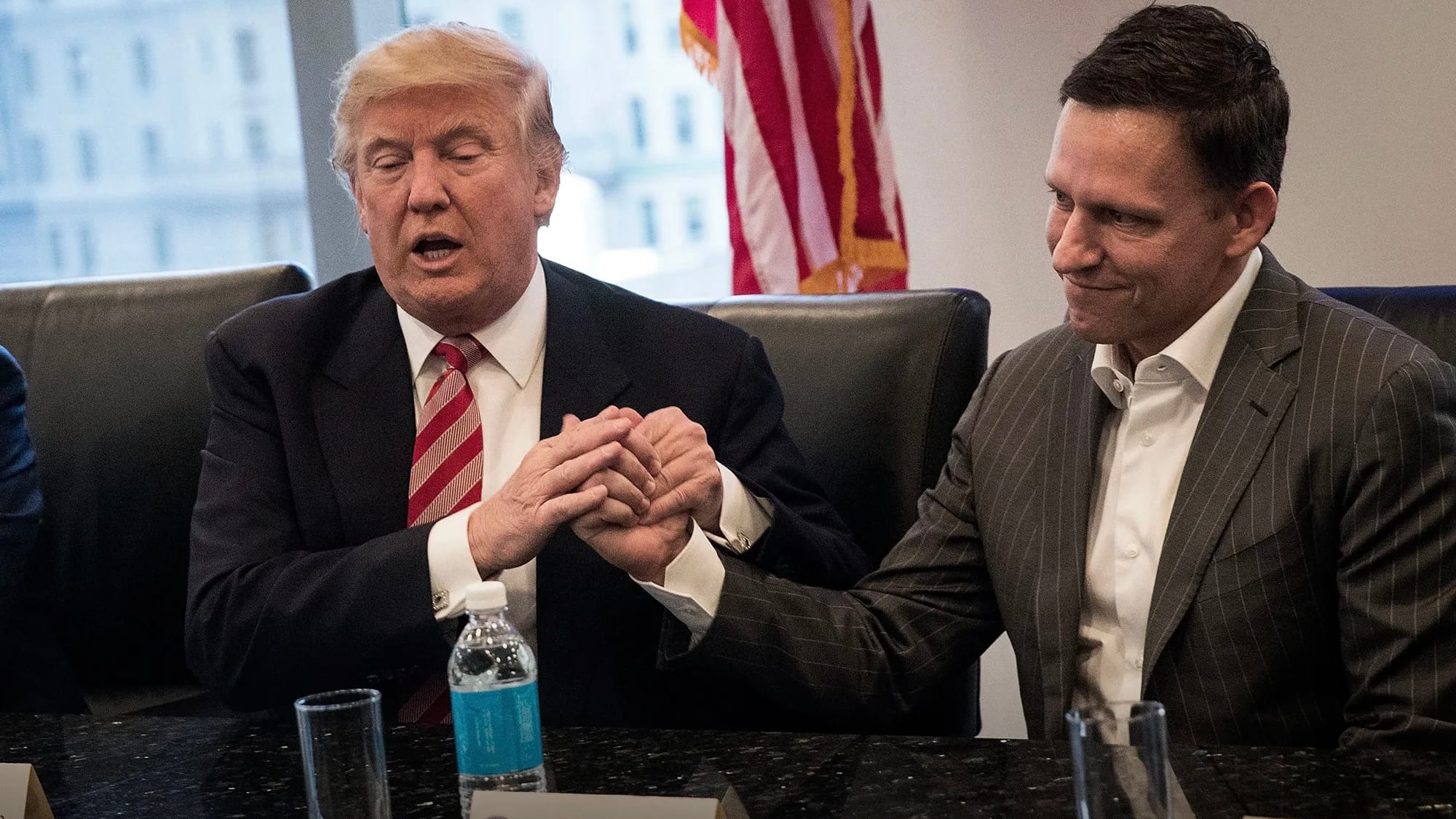“Democracy and freedom are incompatible,” - Peter Thiel

Peter Thiel is not merely another Silicon Valley billionaire—he is a force who quietly shapes the digital and political world, wields immense influence from the shadows, and openly questions democracy itself. As the German-born co-founder of PayPal and early backer of industry giants like Facebook, SpaceX, and Palantir, his reach extends beyond technology and venture capital, deep into the apparatus of state surveillance and American politics. Thiel is not content with simply making money from innovation; he is obsessed with power—how to gain it, how to preserve it, and how to decide who belongs in the halls where decisions are made.
Peter Thiel’s early years were deeply marked by his family’s time in Namibia, then a country under the brutal grip of South African apartheid. The Thiel family settled in Swakopmund, a coastal city notorious at the time for its entrenched German colonial heritage and the open glorification of the Third Reich. In Swakopmund, evidence suggests that Nazi memorabilia adorned shop shelves, “Heil Hitler” greetings were not unusual, and Hitler’s birthday was openly celebrated, all occurring decades after the fall of the Nazi regime. Peter’s father, Klaus Thiel, worked as a chemical engineer at the Rössing uranium mine, a facility segregated along racial lines, where Black workers endured poverty, unsafe working conditions, and systemic oppression, while white families enjoyed affluence and exclusivity.
Thiel attended a German-language school that mandated strict discipline, corporal punishment, and the wearing of uniforms—institutions that functioned within the rigid boundaries of apartheid, where Black children were entirely excluded from the classroom, and the violence of racial separation was visible every day. According to multiple sources, Thiel has never publicly reckoned with this past or the environment in which he was raised, even as classmates have recalled him opining as a young man that apartheid “works” and that moral considerations were irrelevant if a system could produce order and development.
These formative years in a region haunted by both colonial violence and the residue of Nazi ideology represent more than just history—they form the ideological and psychological soil out of which Thiel’s later, anti-democratic and authoritarian tendencies have grown. They are a warning: the forces of fascism, under new digital banners, are never as distant as they appear.
While mass media fixes its gaze on the spectacle of Elon Musk or Mark Zuckerberg, Thiel works from behind closed doors, building a parallel structure of control. Palantir, his company, is described as a “data monster” serving police, intelligence agencies, and military clients across the globe—fusing predictive analytics with real-time surveillance. The chilling reality is that Thiel’s vision for technology is not just profit-driven, but is deeply shaped by an ideological contempt for democratic norms and a preference for elite, almost feudal, rule. He’s openly claimed that “Democracy and freedom are incompatible,” and his business and political activities reflect this logic.
Veterans, especially, should be wary of Thiel’s ambitions. His involvement with military surveillance technology has shifted the battlefield onto civilian life—Palantir’s software is sold as a tool for “predictive policing” and was deployed by the U.S. military before being tested on the streets of America. These tools, trained on the logic of war, are now turned inward on citizens, and the lines between wartime surveillance and peacetime civil rights blur ever more dangerously.
For those on the left—whether union organizers, community activists, or simply working people—Thiel stands as a warning of what happens when unchecked tech power merges with reactionary politics. His philanthropic and political giving has built an entire cadre of protégés and loyalists: from founding radical-libertarian youth fellowships that encourage elite separation and disdain for public education, to bankrolling candidates who openly undermine the foundations of pluralism and civil rights. With the billions from legal loopholes designed for workers’ retirements, he has fueled both right-wing think tanks and direct efforts to pack governments with technocrats and private interests. The threat is not only in what Thiel openly says, but in the silent, structural changes he pushes: turning public infrastructure and the machinery of government over to algorithms, corporations, and private surveillance.
Creeping fascism rarely announces itself at the front door. It creeps in with claims of efficiency, progress, inevitability. Peter Thiel’s career—his deep involvement with intelligence agencies, orchestration of political networks, and embrace of authoritarian politics—demands vigilance and resistance. The history of those who celebrate power without accountability is not theoretical or distant; it’s a slow-building threat to anyone who believes in real democracy and the rights earned through struggle, on the battlefield and in the streets alike.

